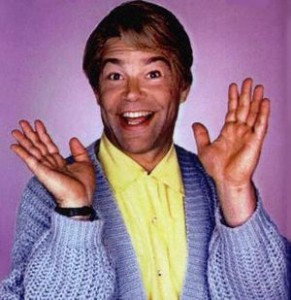 On Thursday night of last week I attended a presentation by a local sales trainer and motivational speaker, Mush Panjwani. The talk was titled “Staying Positive in a Negative World”. I instinctively raise my guard when I see messages like this. Positivity is fine, I believe. But realism untarnished by foolish positivity or self-destructive negativity seems the best policy. But Mush’s presentation spoke to my inner scientist. And it is worth sharing a summary of his arguments here.
On Thursday night of last week I attended a presentation by a local sales trainer and motivational speaker, Mush Panjwani. The talk was titled “Staying Positive in a Negative World”. I instinctively raise my guard when I see messages like this. Positivity is fine, I believe. But realism untarnished by foolish positivity or self-destructive negativity seems the best policy. But Mush’s presentation spoke to my inner scientist. And it is worth sharing a summary of his arguments here.
Mush stated that positivity is influenced by three behaviors: thoughts, vocabulary, and actions. Thoughts affect mood, vocabulary programs our brains and the people around us, and actions have physiological benefits. Below I share my own experience and research on why Mush’s ideas are correct.
Thoughts
Doctors have long known of the power of the placebo. In the case of a placebo, through sheer trickery a doctor can convince a patient that their symptoms will be reduced. Doctors discovered placebos centuries ago when hypochondriacs soaked up large amounts of doctors’ time. The doctors would prescribe something harmless and inert and symptoms would abate. The patient’s mind suppressed symptoms.
Sometime the mind can be changed without the totem issued by a doctor. It is possible an expert could merely tell us something that could change our bodies. In an experiment that Mush summarized in Thursday’s talk, hotel maids’ blood pressure and body weight dropped after a scientist told them how much exercise they were getting. There was no change in their behavior. Just the belief that they were acting healthfully shaped their bodies.
Vocabulary
My friend Josh told me before he had his first child that choice of words can shape a child’s expectation of events. For instance, tell a child, “don’t drop that glass” and the image of dropping the glass enters their mind. The action may soon follow. Instead, a positive way to coach a better outcome is, “hold on to the glass tightly”. Josh read that this latter message would produce better results and a happier child.
Motivational speaker Michael Hyatt wrote about his experience using positive vocabulary to influence attitude. And Tony Robbins has done the same. If you doubt these speakers, if you consider them practitioners of new age claptrap, just talk to any salesman. Salesmen know the power of words on action. If they talk too much about price it overemphasizes money and customers become reluctant. Words are seeds of thought. The right ones will grow into powerful beliefs. The wrong ones sow fear and doubt.
Actions
In 1988 a team lead by Fritz Strack proved that faking a smile could make us happier. His team asked research participants to place a pencil in their mouth while watching cartoons. When a pencil is held in our lips, from one end of the pencil, our face approximates a frown. When we bite on the pencil, with each end extending to our face’s sides, our mouth approximates a smile. When “faking” a smile the subjects found cartoons funnier. When faking a frown they found them less so. In short, humor and positive facial expressions are mutually supportive.
Of course there are other studies, too. I previously wrote on Amy Cuddy’s work investigating the relationship between posture and confidence. She showed that powerful postures increase our testosterone. And testosterone fuels confidence. It is elementary that confidence increases chances of success. Ergo, carry yourself like a winner and you will win.
Recommendations
Our minds may be biased towards negativity. But it can be tricked into addressing our pains. Our vocabulary can condition it towards positivity. Our posture can flood our veins with testosterone and build confidence. It sounds like exercises in positivity improvement are reasonable in a stressful world.


Thanks for sharing, Scott!
A great summary with additional relevant stuff. Cheers 🙂